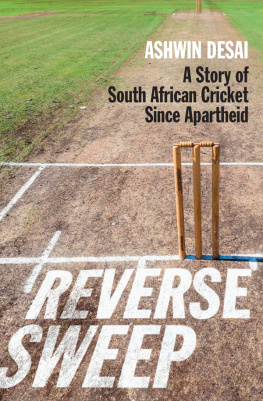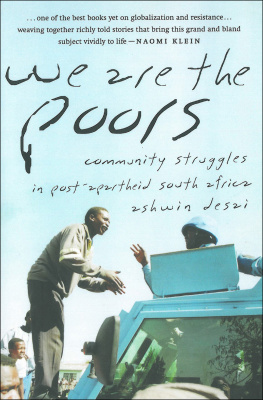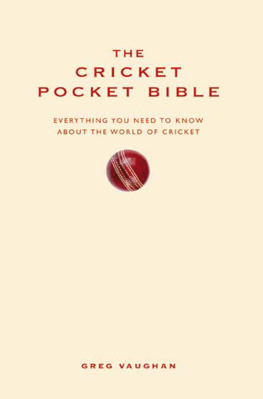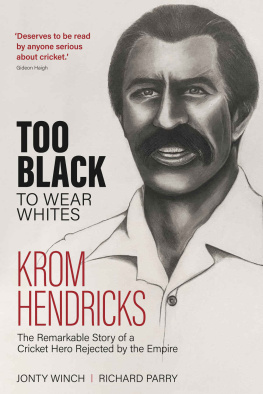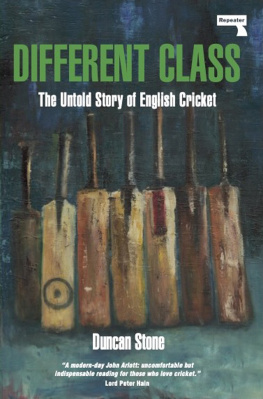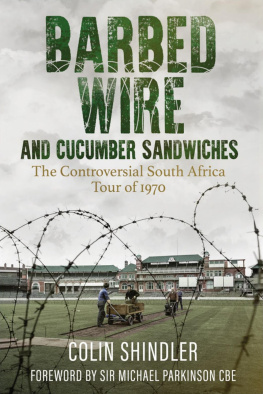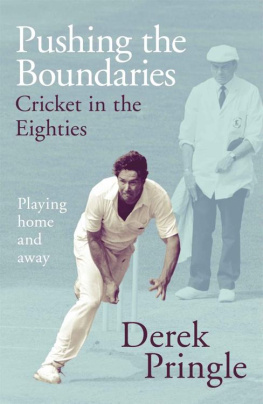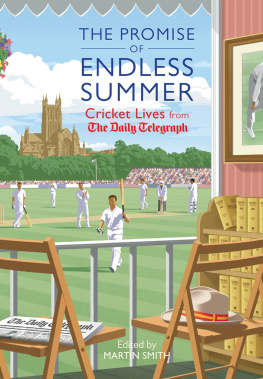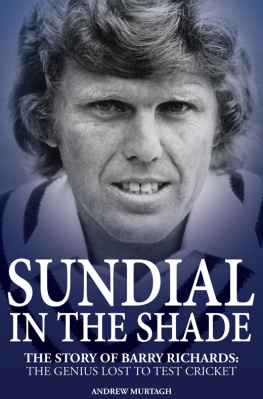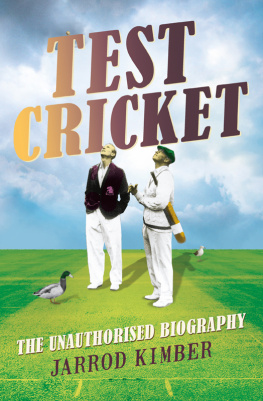All rights reserved.
Acknowledgements
I N WRITING A BOOK of this sort one incurs many debts to many people. They include Andr Odendaal, Heinrich Bhmke and Jo Rushby. The book was considerably enhanced by the comments of Bridget Impey, Russell Martin and Christopher Merrett. Also thanks to the Jacana team, especially Nadia Goetham, Lara Jacob and Sibongile Machika.
Preface
Now in Maytime to the wicket
Out I march with bat and pad:
See the son of grief at cricket
Trying to be glad.
A.E. H OUSMAN , A S HROPSHIRE L AD
I N THE EARLY 1970 S , almost every summer weekend I made the journey from the centre of Durban to the Springfield grounds. Springfield is now home to massive business complexes and highways hemmed around by city sprawl, but in the early 1970s it was very much on the outskirts. Six or seven games of cricket were played, simultaneously, on ancient matting wickets according to rules first written in the eighteenth century. There were no sightscreens. Irregular boundaries were marked by misshapen whitewashed stones. Clumps of grass and molehills hid crevices that tested the most flexible of ankles. In a script that veered between comedy and tragedy I could not wait to get the call to don my whites and be drawn into the drama of Springfield.
On a Saturday afternoon you would arrive and drag a mat from a wood-and-iron shed. The mats were crusty and mouldy and came in all sorts of grotesque shapes. We would lay a mat on the pitch. The holes were huge. If you tried for a quick single, more often than not you would get stuck so you had to run alongside the pitch. This meant running in the direction of cover and then veering back to the pitch. We were playing cricket, but running like baseball players.
It was impossible to play cover drives that stuck to the turf. The ground was too spotted with holes and mounds. To score, you had to loft the ball. This created its own problems. Once a big-hitter was in, the fielders on the adjacent ground needed eyes in the backs of their heads. The fields were on top of each other with no sightscreens, so as the sun descended one sometimes saw two bowlers approaching. What did a score of 50 mean under these conditions? What did five wickets mean when you managed to hit the hole in the mat and turn the ball sharper than Shane Warne?
Occasionally, my father and I would go to Kingsmead, the cathedral of white cricket. Here was a completely different world of wonder: turf wickets, picket fences, sightscreens, a scoreboard that flashed lights while invisible hands moved the score. Everything was so beautifully white, pristine and ordered. My father carved out a space under the clock for us to sit, a small blanket, two paper cups and a bottle of Coo-ee forming our own boundary within the tiny non-white section.
I watched the Springboks (as the national team was then still called) crush the Australians here in 1970. It was my joy also to witness many a provincial innings by the majestic Barry Richards. During one provincial game against Transvaal, my father, who was light of hue, snuck into the white area in search of a cup of tea. On his way back he was manhandled and unceremoniously pushed over the fence, all the while trying to hold onto the cup of tea. People on both sides of the divide clapped and laughed. He took his place on the blanket, this most gentle of men, and without saying a word picked up the binoculars to follow Mike Procters run-up that started near the sightscreen. In one of my fathers greatest gifts to me, C.L.R. Jamess Beyond a Boundary, I marked these words: The British tradition soaked deep into me was that when you entered the sporting arena you left behind the sordid compromises of everyday life. Yet for us to do that we would have We stayed away. The incident sparked a sense that in order to understand the game one required more than a pair of binoculars. Yet it never killed my passion for the game. How could it, given that its first seeds were planted in a sons fond memories of trips to the ground with his father and nourished by a whole boyhoods excitement and play?

